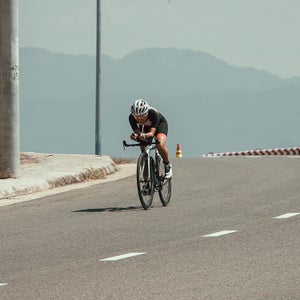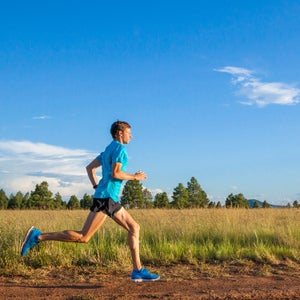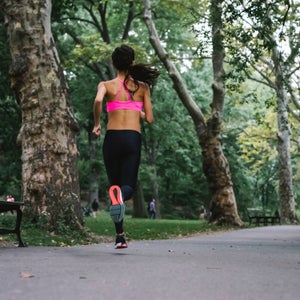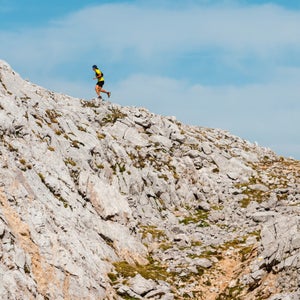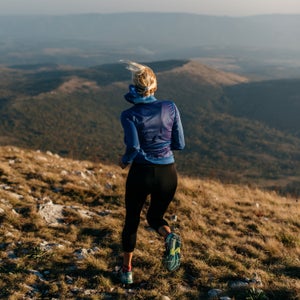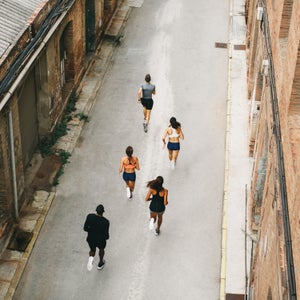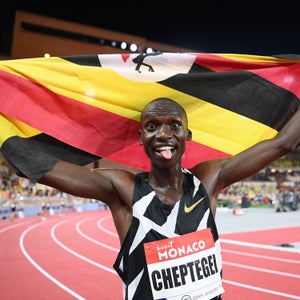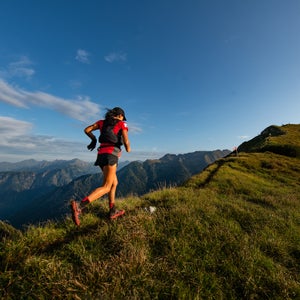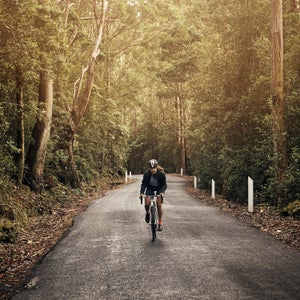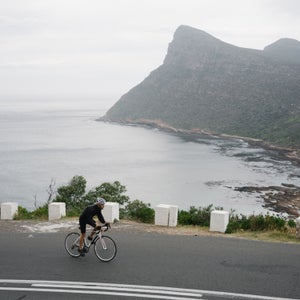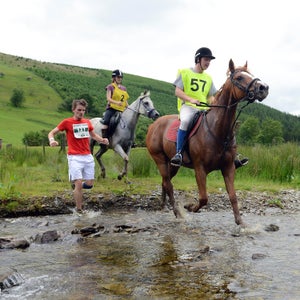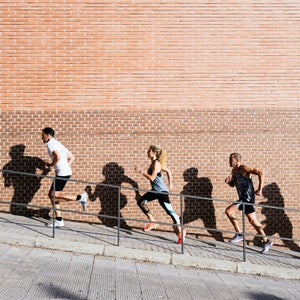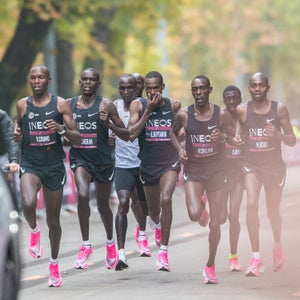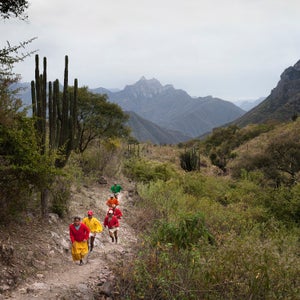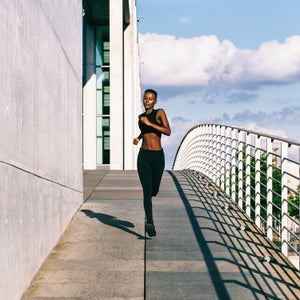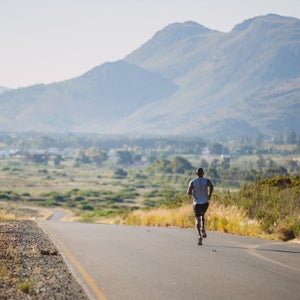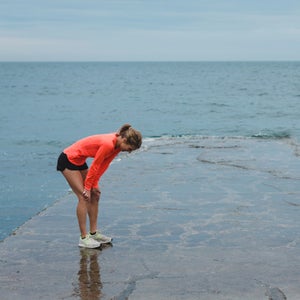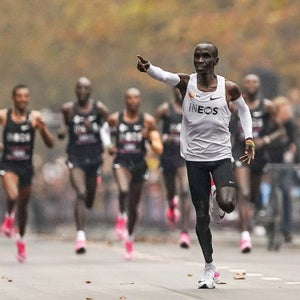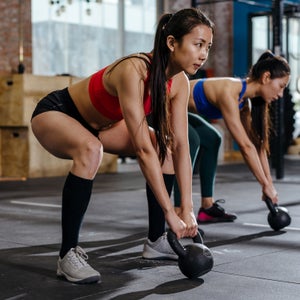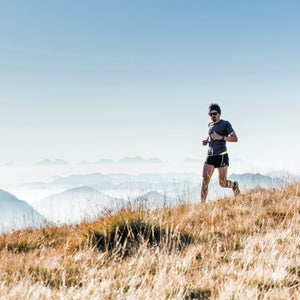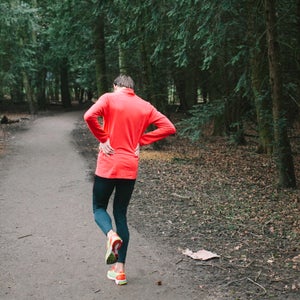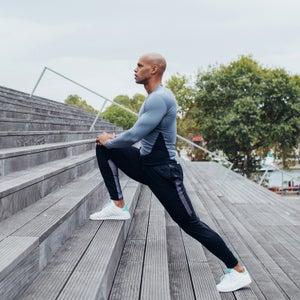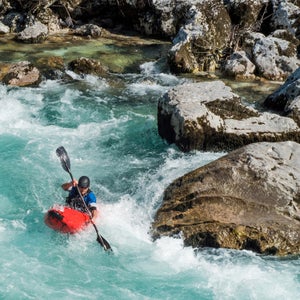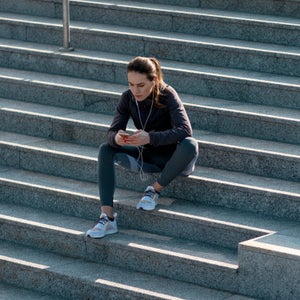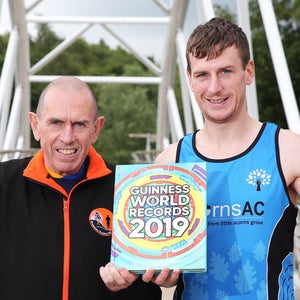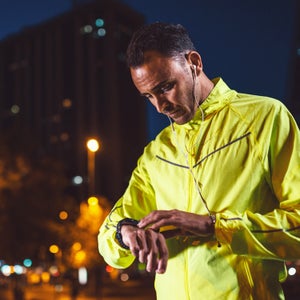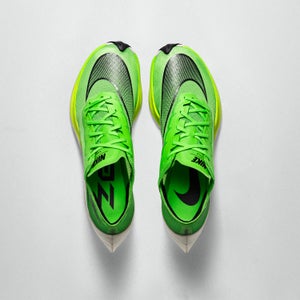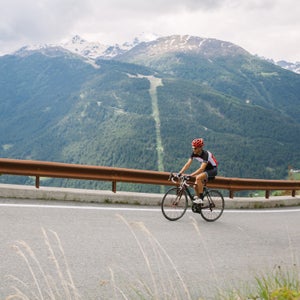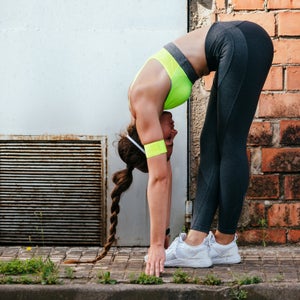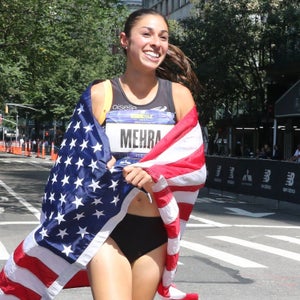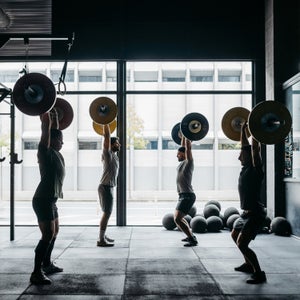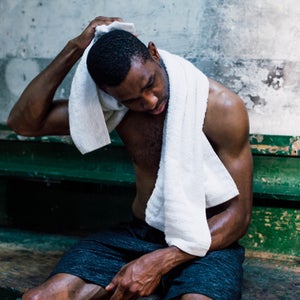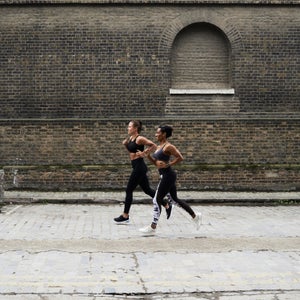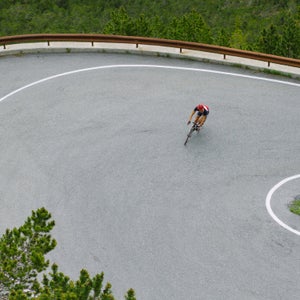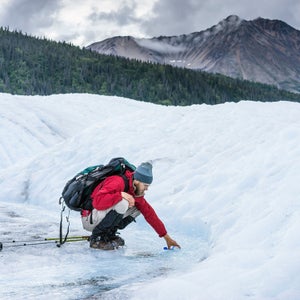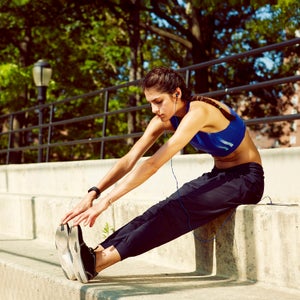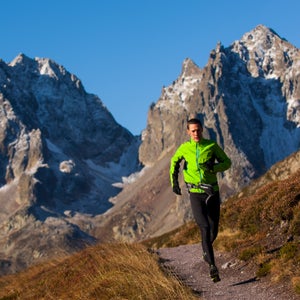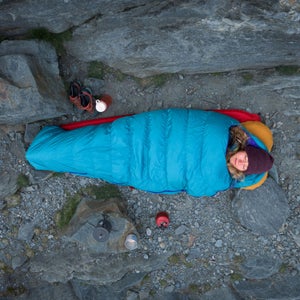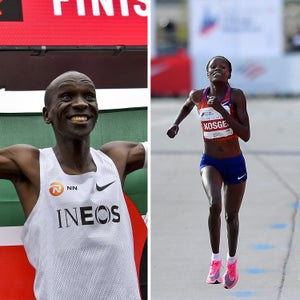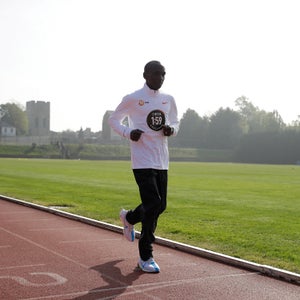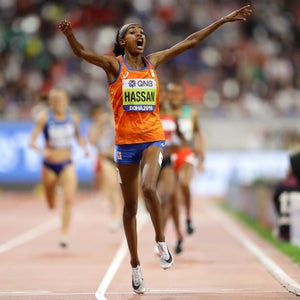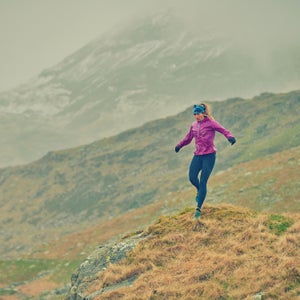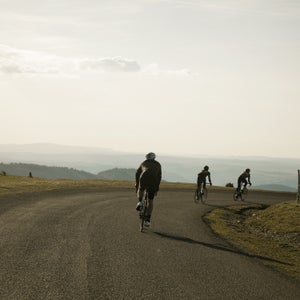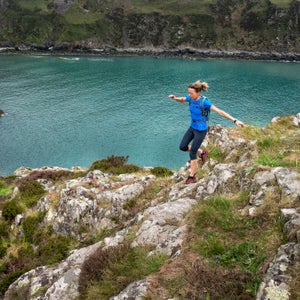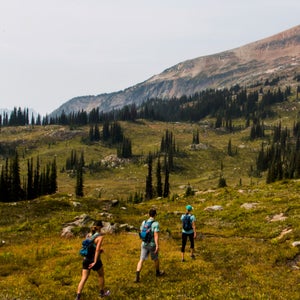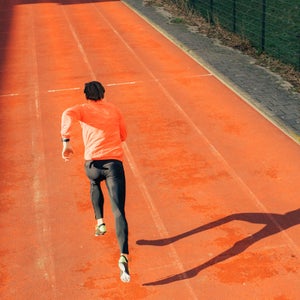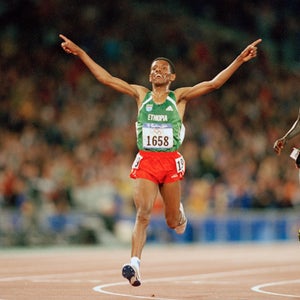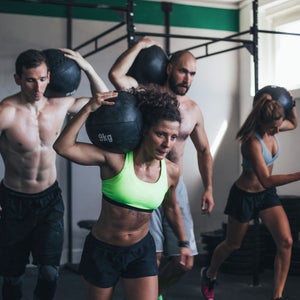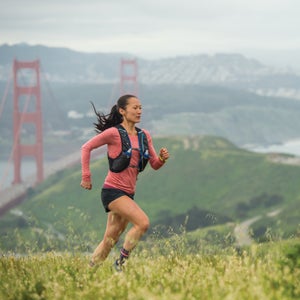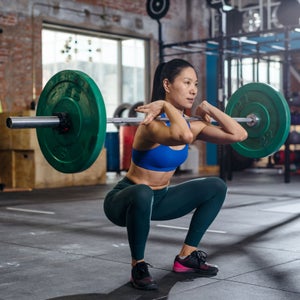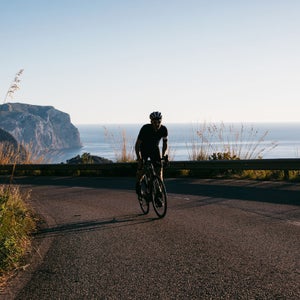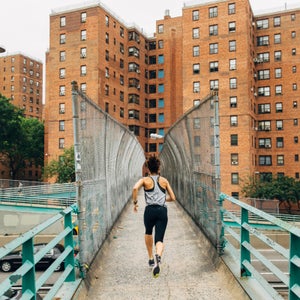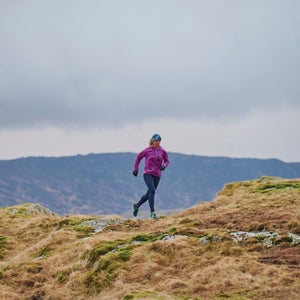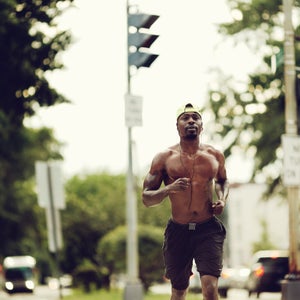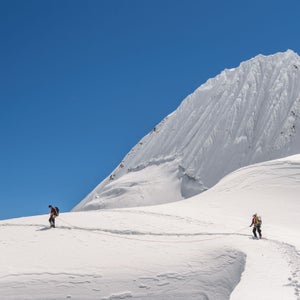

Alex Hutchinson
Alex Hutchinson is a National Magazine Award-winning journalist and┬а╣·▓·│╘╣╧║┌┴╧тАЩs Sweat Science columnist, covering the latest research on endurance and outdoor sports.
His most recent book is the┬аNew York Times┬аbestseller┬а. Before becoming a journalist, he completed a PhD in physics at the University of Cambridge and worked as a researcher in the National Security AgencyтАЩs Quantum Computing group. He also competed for the Canadian national team in track, cross-country, road, and mountain running. He lives (and runs) in Toronto.
Find Me
Published
Even compared to athletes from other sports, endurance athletes have a unique relationship with discomfort
A new study asked coaches to rank the most economical runners after watching video footage. It didn't go well.
Experienced runners tend to match their breath and stride patterns, but trying to do it deliberately may backfire
The disruptions of 2020 mean that thereтАЩs an unusually large crop of endurance-related books hitting shelves this fall
A new analysis casts doubt on the idea that people are born as "responders" or "non-responders" for training in thin air
Are you planning a canoe trip this summer? Read this helpful advice from our Sweat Science columnistтАФhe takes backcountry efficiency very seriously.
A new study suggests that strength training is more important than electrolytes for preventing cramps
ItтАЩs the one training metric virtually all runners track, but running scientists think we can do better
With a little help from technology, Joshua Cheptegei took down the 5,000-meter world record in Monaco last week
After a controversial Australian study's negative findings about low-carb, high-fat diets, scientists made adjustments and ran the study again
Science says the HoverGlide reduces vertical forces by more than 80 percent. But what does it actually feel like?
After an exhaustive search of the literature, researchers conclude that, well, it's complicated
When the going gets tough, which sensation actually slows you down?
The ability to sustain a high rate of energy burn for a prolonged period of time may help ward off cancer
The hotter it is, the closer we come to the ever elusive goal of besting the horseтАФwhich supports the evolutionary "born to run" hypothesis
Three new studies explore iron patches, injections, and dose frequency
Sweaty workouts do enhance your endurance, according to a new theory, but it may take longer and function differently than previously thought
A new aerodynamic analysis runs the numbers on exactly where to run when youтАЩre behind someone else
A decade after 'Born to Run' made them famous, anthropologists take another look
A new study uses the training data you upload to sites like Strava to estimate the "critical speed" that determines your race performance
To figure out how your body will respond in hot conditions, consider your тАЬphysiological equivalent temperatureтАЭ
Maybe the debilitating effects of chronic overtraining syndrome are in your muscles after all, not your head or your hormones
Physiologists from around the world share their pet theories and crazy ideas on what it will take to break records
A new study of female athletes sees big strength gains from twice-a-week lifting
Researchers put the four main running power devices through a series of tests and picked a clear winner
They're not more tired than the rest of us, according to a new studyтАФthey're just better at sleeping
New research explores why you go slower and feel worse, even though youтАЩre pushing as hard as usual
New research on mental fatigue suggests that even elite runners perform worse after a 45-minute computer task
New research suggests that the lactate produced by hard interval workouts alters the hormones that determine your appetite
So-called "flush drownings" lack an obvious cause like getting trapped underwater. Researchers now believe water temperature is a key factor.
Some sports scientists believe that a measure called the "acute-to-chronic workload ratio" can predict your risk of injury. But critics aren't so sure.
For endurance athletes, new research suggests that different pre-race rituals, or even no warm-up at all, give pretty much the same results
Nobody gets a free pass to sit all day, but new research on how sitting affects your arteries offers some encouraging news for cyclists
Russian women got slower after the Athlete Biological Passport was introduced in 2012. Anti-doping officials think they know why.
New lab data from a record-setting 59-year-old offers insights on how we ageтАФand, potentially, how to avoid it
Recent studies suggest that sunlight may lower blood pressure in ways that have nothing to do with vitamin D
New technology is striving to make it happen
Humans were born to dive, according to some scientists, and that fact helps us thrive at high altitudes
A wilderness medicine expert and former AT thru-hiker shares her tips for tackling a long-distance backpacking trip
Pretty much every elite endurance athlete trains in mountain air or the altitude-tent equivalent. But a few scientists think they're wasting their time and money.
The simple story of an unfair shoe with тАЬspringsтАЭ doesnтАЩt capture the true complexity of the ongoing debate about technology in footwear
A new study finds unexpected benefits from super-short intervals with even shorter recoveries
Scientists are increasingly skeptical of the benefits of flexibility, but the fitness world doesnтАЩt want to hear it
When Rebecca Mehra tried to unplug a broken oven, she almost ended her track seasonтАФor worse
New research hands down verdicts on what to lift, how much, and how hard
Heat training has been hyped as a powerful workout enhancer, but new research sounds a note of caution
Researchers deploy machine learning to match running styles to the risk of different types of injury
To better push your limits, try swearing off some of your most familiar crutches now and then
Improving your max aerobic power may come at the cost of worse efficiency, a study finds
Up-to-date guidelines on the pros and cons of filters, ultraviolet light, chemicals, and other options
To train athletes to truly push their limits, it helps to draw inspiration from the French social theorist Michel Foucault. Seriously.
Great titles for the endurance-curious, or to curl up with yourself
Platelet-rich plasma therapy, or PRP, has been touted as a miracle cure for sports injuries, but it may counteract the benefits of plain old rehab exercises
A new analysis tracks people doing 35 hours of exercise per week for a decade, and finds no evidence of heart risks
Scientists can forecast marathon performance fairly accurately. But for longer distances, things get complicated.
All-out sprint speed may seem irrelevant in longer events, but new science is making the case for having a тАЬspeed reserveтАЭ
At a conference on sports innovation, sleep scientist Charles Samuels cuts through the hype
The Swedish company Maurten's hydrogel drink has taken the endurance world by storm over the last two years. Now scientists are testing their claims.
Over the past decade, athletes, coaches, and researchers have been seduced by the performance-boosting promises of brain stimulation. On a ride-and-zap-your-brain-like-the-pros tour through the Alps, Alex Hutchinson wonders whether it really worksтАФand whether we want it to.
The two-hour barrier and the womenтАЩs marathon world record both fell this weekend. The history makers, Eliud Kipchoge and Brigid Kosgei, have one obvious thing in common.
A new study quantifies the time gained and lost from the geography of the INEOS 1:59 Challenge course, and suggests that you donтАЩt need to sweat the curves
Crunching the data suggests that distance runners at this yearтАЩs track world champs paced more aggressively than ever
Delayed gratification gets harder when youтАЩre overtrained, according to a new brain-scanning study
A handful of new products are claiming they can. The jury's still out on whether they deliver enough of an edge to justify the agony.
New evidence bolsters the claim that adapting to hot weather gives an all-around fitness advantageтАФbut not right away.
Whether youтАЩre striving for peak performance or coming back from injury, psychological techniques can help
Some key takeaways on hydration, power meters, recovery, and menstrual period tracking
Two new studies on beet juice and VO2max highlight the limitations of sports science research that excludes female athletes
Figuring out how long, how often, and when to train in the mountains remains an art for endurance athletes
The physiological and psychological responses to different types of interval workout depend on the details
A historical analysis of world-record pacing suggests that beating your own best time can be complicated
A study that assigns different workout plans to each leg shows just how much (or little) the details matter
Scientists debate the physiological benefits of ramping up your training intensity or your training volume
You have to work hard to build strength, but that doesnтАЩt necessarily mean collapsing to the floor after each set
A pair of presentations explore the biomechanics of the controversial shoe, and whether it wards off marathon-induced muscle damage
The theory makes sense, but actually showing that тАЬhyperoxic trainingтАЭ makes you faster remains a challenge
A new study finds that your тАЬcritical speedтАЭ threshold drops in the last third of a marathon, which may explain why the distance produces so many blow-ups
A simple self-test zeroes in on the most efficient stride rate for your running style
A new study looks at the effect of subtle wording changes on the performance-boosting power of motivational self-talk
Experts from the Wilderness Medical Society have combed through the evidence to assess what works and what doesnтАЩt
